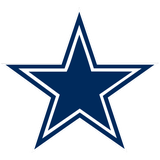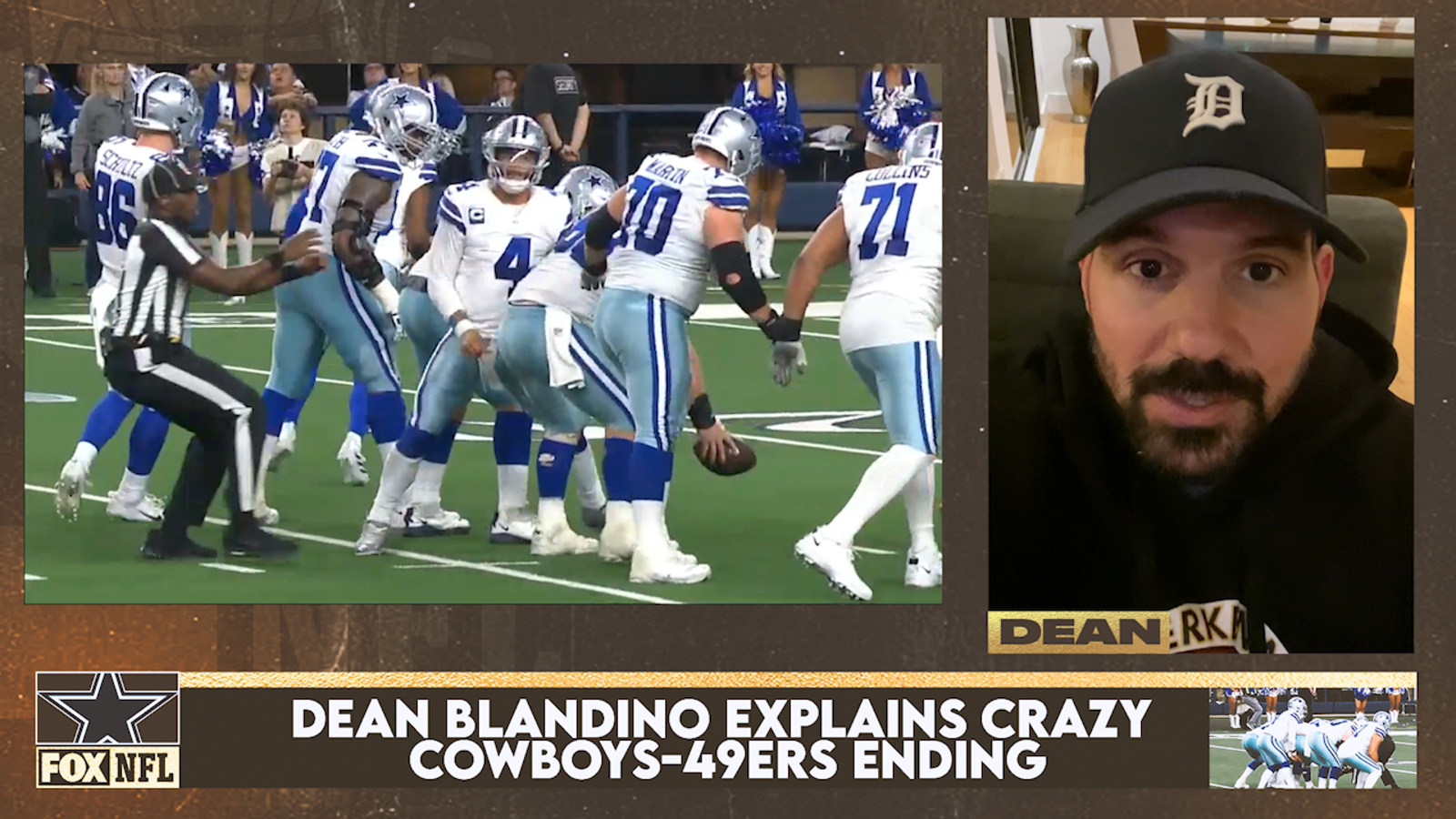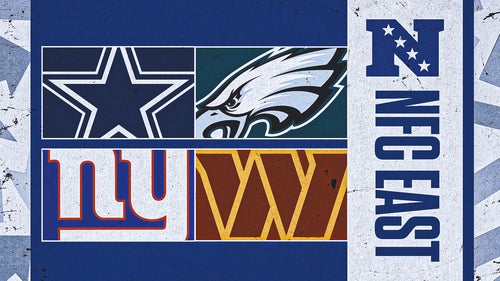
Cowboys-49ers: Breaking down the final play of a wild finish
It was the slide heard 'round the world.
Of all the ways Sunday's playoff contest between the Dallas Cowboys and San Francisco 49ers could've ended, this one seemed highly improbable. And it might be a while before we see an ending like that again.
The drama began on Dallas' last push to the end zone, with time running short on the clock. The Cowboys received the ball on their 20-yard line with 32 seconds remaining after forcing San Francisco to punt.
After just 14 seconds across three plays, Dak Prescott's troupe had moved to the other side of the 50, plowing toward San Fran's 41.
It was there that misfortune befell the Cowboys and ended their season.
As Dallas came out in an empty look with five receivers split wide, the 49ers directed their attention to the outside of the field in an effort to stop a short throw to the sideline. This left the middle of the field wide open, and Prescott took advantage, taking off on a quick QB draw. He sprinted up-field for a 17-yard gain before sliding to avoid contact.
But Prescott was far from safe.
As he jumped to his feet with seven seconds left, he handed the ball to center Tyler Biadasz, who spotted it near the 24-yard line while the team assembled into a spike formation.
The problem was Biadasz was not allowed to spot the football. That duty is reserved for officials only, and as umpire Ramon George sprinted to the pigskin to carry out that task, time continued to drain. By the time Dallas was able to snap the ball, the clock had already flashed four zeroes.
Game over.
That's how the Cowboys' 12-5, Super Bowl-or-bust season closed — with the swiftness of a light particle and the resounding echo of an earthquake.
In Skip Bayless' mind, the team's season indeed ended at the hands of the officiating crew.
"Ramon George should've had us with four seconds left on the clock on the last play," Bayless said Monday on "Undisputed."
"I don't know if Mike McCarthy or Kellen Moore called the quarterback draw, but I like it because the middle of the field was wide open. You have a play clock in your head. You obviously have to get down in time to give the umpire time to catch up and spot the football. I thought Ramon George was late getting to the play. You have to get to the football as soon as [the players] because they were ready. But he got a late start, and I thought he was just late to the play."
But Bayless had plenty of dissenting opinions to his take.
NFL referee Alex Kemp defended George's actions, telling ESPN's Todd Archer that he "spotted the ball properly" ahead of the late snap.
ESPN's Kevin Seifert echoed that opinion, saying the game officials "did their jobs" on the play and writing that "players are advised to hand the ball directly to the umpire or another official to expedite spotting of the ball."
ESPN's Dan Orlovsky shared a similar viewpoint in his evaluation, lamenting Dallas' lack of awareness as its ultimate downfall.
"Dak should be popping up, finding the official — we still have six seconds on the play clock — and giving him the ball," he said. "If you do, you're probably going to spike it with one second. You have never been taught in this situation to hand the ball to your teammate."
FOX Sports rules analyst Dean Blandino sided with the officials as well.
"Couple things to remember: An official must spot the football or, at the very minimum, touch it," Blandino explained.
"Players know that. The Cowboys do have a reasonable amount of time to get lined up and legally snap the football. The umpire was about 15 yards behind the line of scrimmage when the ball was snapped. As soon as the umpire recognizes that Dak is running, he should start to move downfield, trail the play and be in the best position to be able to get the ball spotted officially and allow the offense to snap the football. It's a risky play call. The players understand: You've got to get the ball to an official."
"An official must spot the football" — Dean Blandino
Hindsight is usually 20/20, and the Cowboys will have plenty of time to reflect as they head home for the offseason.
Because even if the officials deserved the blame, it's Dallas that has to hold the L.










